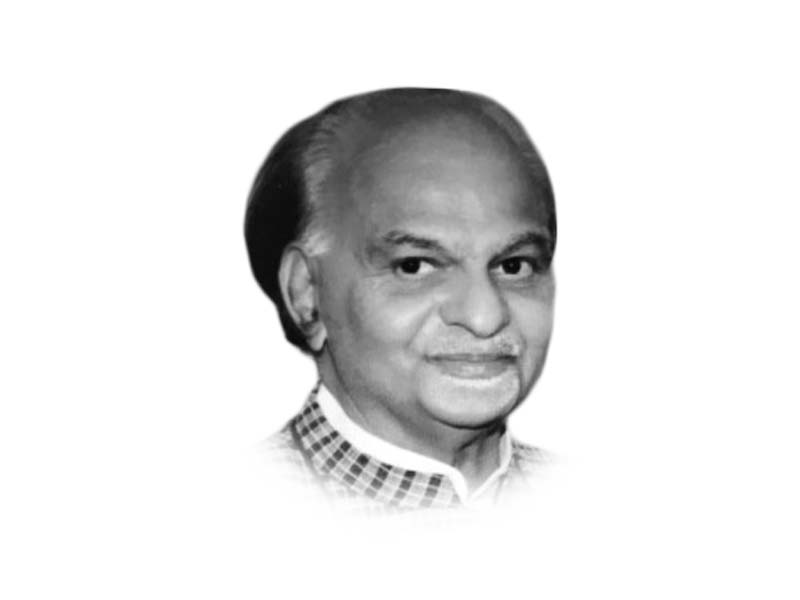
While browsing through the Bhagavad Gita (The Song of the Lord), part of the Hindu epic Mahabharata (400 BC-200 AD), I discovered with absolute surprise that it is a continuous dialogue between Prince Arjuna and his charioteer Lord Krishna, who counsels the prince about his duties as a warrior and to ensure establishing Dharma.
Suddenly, I switched over to thinking about the Pakistani nation confronted with the continued dramatic political saga of former prime minister Nawaz Sharif and his family, most particularly his daughter, seemingly the “heir apparent” to his political legacy as well as leadership of the country — and their planned continued hold on political power now and in the near and far-off future.
Of course, I thought: is, metaphorically, the former prime minister the modern-day “Lord and Charioteer” counselling his “heir apparent” daughter and the manifest warrior, the modern day political “princess,” in the art of political behaviour?
At that same moment, though, I also thought of Machiavelli, the 16th-century Italian philosopher, who contended that in the skill of political management, “political expediency is placed above morality and the ruler should use craft and deceit to maintain authority and carry out (his) policies,” and control over political power.
It is self-evident that the role of the former PM is “Lord, the counsellor” to “the Princess.” However, it also appears that Dharma has been thrown aside, and Machiavelli’s ideological premise seems to be the driving force in the political behaviour of the former prime minister and his heir apparent.
Let us carefully examine the political stance of “the princess” as “heir apparent” to the former PM and to the PML-N leadership.
It appears that “the princess’s” claim to political inheritance and power rests on several debatable assumptions that she seems to believe are an absolute necessity to the future political management of Pakistan. For example, she might hold the opinion that political stability in the country is fundamental to Pakistan’s survival and its future socio-economic, cultural and technological-industrial development. And this goal can only be assured by the Sharif family.
I can only guess what “the princess” might say in support of her contention: most likely that the Sharifs have the required political management experience to do the job well, the PML-N under the Sharifs’ leadership is a well-organised party, and its political management credentials are far better as compared to any other political party in the country.
The counter-claim is that, although it is absolutely true that Pakistan needs steadfast and political stability to go forward, the idea that such stability in the country is only possible through the Sharif family’s dynastic succession to political power is without any merit. This is so because the notion of dynastic politics is inherently opposed to the idea of a democratic state. History is witness to the fact that democracy and its institutions have flourished only when status quo-oriented political institutions have been continuously replaced through an on-going process of change and by the dynamics of the force of change implicit in that political process.
Sadly, after holding on to political power for over three decades, the Sharifs have nothing new to offer. “The princess,” as such, is the epitome of status quo. The question is, how can anyone promote the argument that status quo continuity is a viable modern political management model suited to a truly democratic future?
Furthermore, she might also believe that the present political culture in Pakistan and its accompanying infrastructure must be strictly maintained at all costs in order to support political economic stability. This process pertains to permanently holding on to the leadership of the party.
The counter-argument to this belief, however, is formidable. The necessity of preserving the present political culture for economic stability is a charade, a perception management campaign of false propaganda, outright lying and manipulation of symbolic and emotional rhetoric. Let us state the facts as simply as they are: The prevailing political-economic status quo and the contemporary political culture in the country (organised, supported, and consolidated by the vested interests ruling elite) is the fundamental problem and a hurdle to the country’s overall development. In fact, it is the main cause of the country’s political, economic and socio-cultural backwardness. It appears that the Sharif family’s devastating contribution to the country’s multifarious problems has been made abundantly clear by the Supreme Court’s judgment disqualifying Nawaz Sharif as prime minister.
Under normal circumstances, self-defence and self-promotion is an intrinsic part of human nature; the heir apparent “princess” cannot be an exception to this rule. Almost certainly, she would tell us that she has had three decades of extensive training in national political management by none other than her father, the three-time prime minister of Pakistan. Hence, she is fully trained to take over the reins of power.
No matter how true this assertion is technically, in the context of national politics, this is an unconvincing argument. The problem is that all societies undergo constant changes over a period of time. This, in itself, is an evolving and evolutionary process inconsistent with the status quo paradigm. The heir apparent’s extensive personal training becomes irrelevant because there is no real evidence to suggest that the “trainer” or the “trainee” in themselves have undergone appreciable re-orientation in the art of conducting political management of the country by an evolutionary process or theory. Sharif politics has remained dogmatic, ultra-right wing and non-evolutionary, and diametrically opposed to the fundamental necessities of a fast-changing society.
In fact, the PML-N leadership, in absolute terms, adheres to ideological capitalism as the only possible driving force behind the advancement of society. The allure and attractiveness of the said system for Pakistan’s ruling elite is in its perverse system of rewards. Whereas the modern welfare state system is based on the notion that everyone in a society should have moderate well-being, and that the state is responsible for every citizen’s health, education, security, employment, etc, the prevalent capitalistic school in Pakistan proposes that the aim of life is to get rich, and that anyone can get rich. Certainly, we all know how political power is used in the service of massive economic gains by vested interests.
Above all, the Sharifs have been scandalised beyond any reasonable possibility to be redeemed politically, ethically, or as genuine trustees of the nation’s interests — not even the “heir apparent.”
So “princess,” I am sorry to say, now is not your time. The winds of change are in control of our existence — just in case you have not noticed!
Published in The Express Tribune, September 26th, 2017.
Like Opinion & Editorial on Facebook, follow @ETOpEd on Twitter to receive all updates on all our daily pieces.
1734689719-0/jlo-diddy-(3)1734689719-0-405x300.webp)
1734954517-0/Untitled-(90)1734954517-0-165x106.webp)

1734953966-0/Untitled-(89)1734953966-0-165x106.webp)
1734953256-0/blake-justin-(1)1734953256-0-165x106.webp)











1734778885-0/Untitled-(10)1734778885-0-270x192.webp)

COMMENTS (1)
Comments are moderated and generally will be posted if they are on-topic and not abusive.
For more information, please see our Comments FAQ